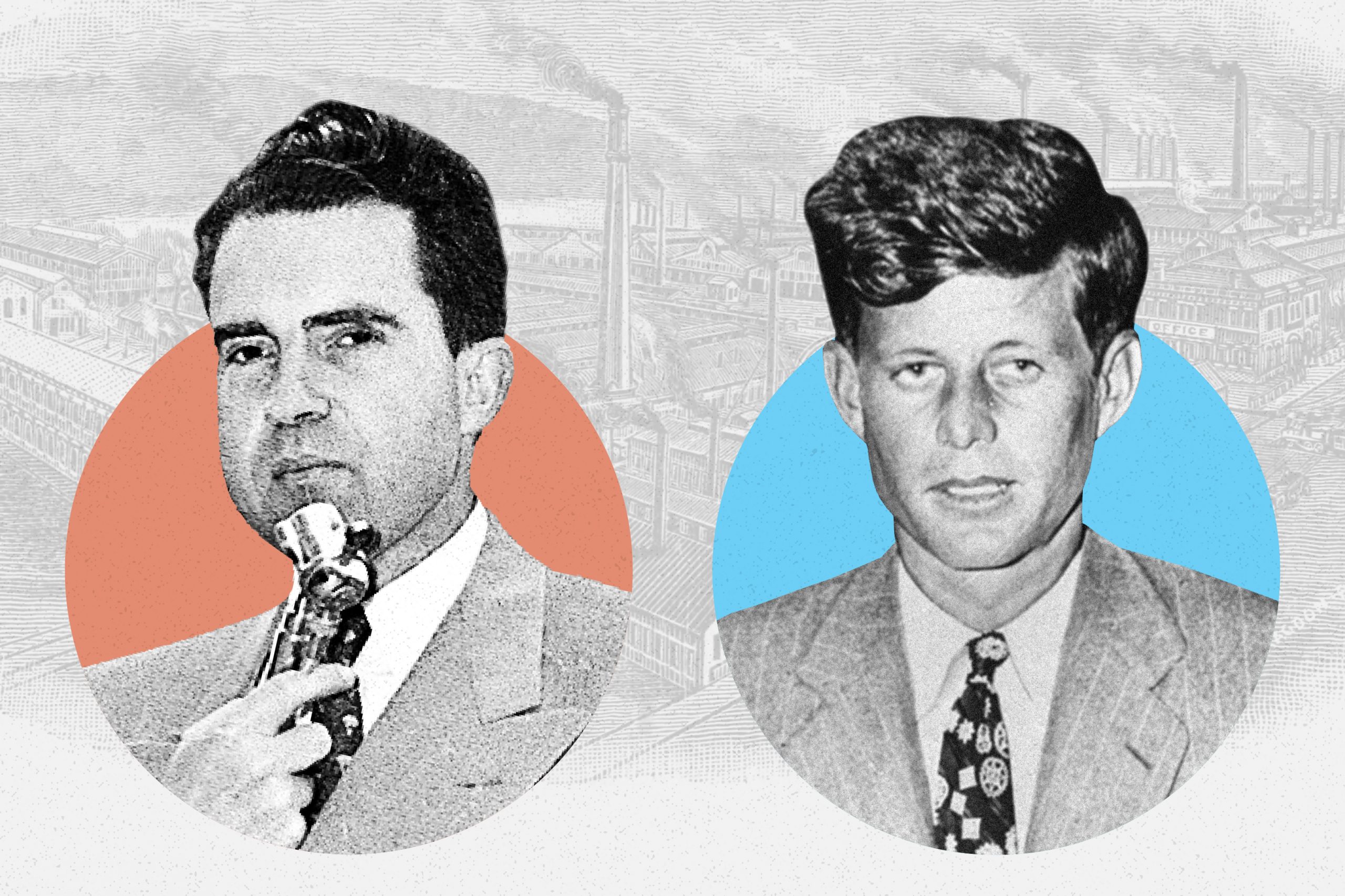The White House was launching a broad offensive of its own. A month before the McKeesport trip, Truman, accused by Republicans of coddling communists in his administration, announced a program to investigate the loyalty of government employees — long before conspiracy theories emerged of a “deep state” plotting to undermine elected leaders.
The tensions flaring around Nixon and Kennedy were symbolized by the memberships of their committees.
Sitting a few chairs away from Nixon on the Education and Labor Committee was Rep. Clare Hoffman, the seven-term Republican from Michigan who had come of age in the 19th century — and whose views reflected it. Hoffman was widely known for his attacks on Jews and was designated by radio commentator and newspaper columnist Walter Winchell as “the darling of the native fascists and Roosevelt haters.” Hoffman, now in his early 70s, endorsed the isolationist and anti-immigrant America First Party in the 1944 presidential election.
But his rabidly racist and isolationist bent didn’t affect his influence. Hoffman had recently been named chair of the Committee on Expenditures in the Executive Department, from where he would preside over a piece of legislation that proved to be one of the most significant passed that year, which both Nixon and Kennedy supported: The National Security Act of 1947, which established a separate Department of the Air Force, the Joint Chiefs of Staff, the National Security Council, the Central Intelligence Agency — the permanent national security state.
On the Un-American Activities Committee to which Nixon was also assigned were the likes of Democrat John Rankin of Mississippi, who was derided the “number one race-baiter in Congress.” Black people and white people could “never live together on terms of social and political equality,” he said, declaring that America had become a dumping ground for “the maimed, the blind, the wounded … the riffraff of the world.”
Rankin once delivered a tirade against Jews on the House floor in the presence of fellow Congressman Michael Edelstein of New York, who it was widely known suffered from a serious heart condition. Rankin’s vitriol led Edelstein, despite doctor’s orders, to rise in a determined defense of his religion. When he was finished, he slowly exited the House chamber — and dropped dead.
But a new era was beckoning. Also shaping the Education and Labor Committee debates was the thunderous voice of Adam Clayton Powell, Jr., of New York, who was elected two years before Kennedy and Nixon.
The tall and dapper 39-year-old preacher from Harlem was powering the nascent crusade for social and racial justice at a time when Southern congressmen like Rankin unabashedly slung racial epithets on the House floor.
Just a week before the McKeesport debate, Jackie Robinson broke the color barrier in professional baseball when he played his first game for the Brooklyn Dodgers. Other tectonic shifts would soon follow, including Truman’s executive order to desegregate the armed forces.
As the train inched toward the center of McKeesport, Nixon and Kennedy saw crumbling brick row houses, many of them squalid tenements housing low-income Black people, Mexicans and the elderly.
